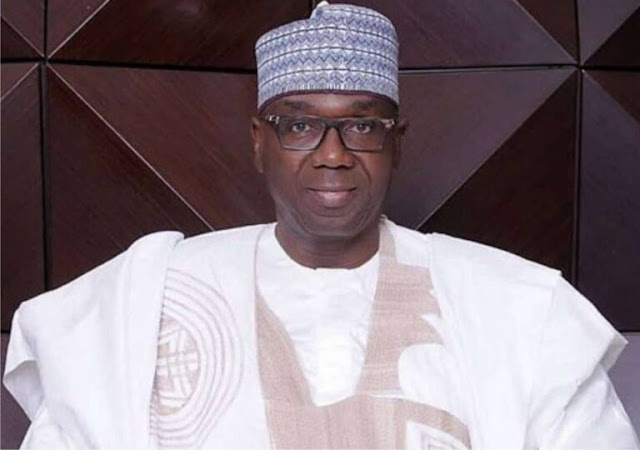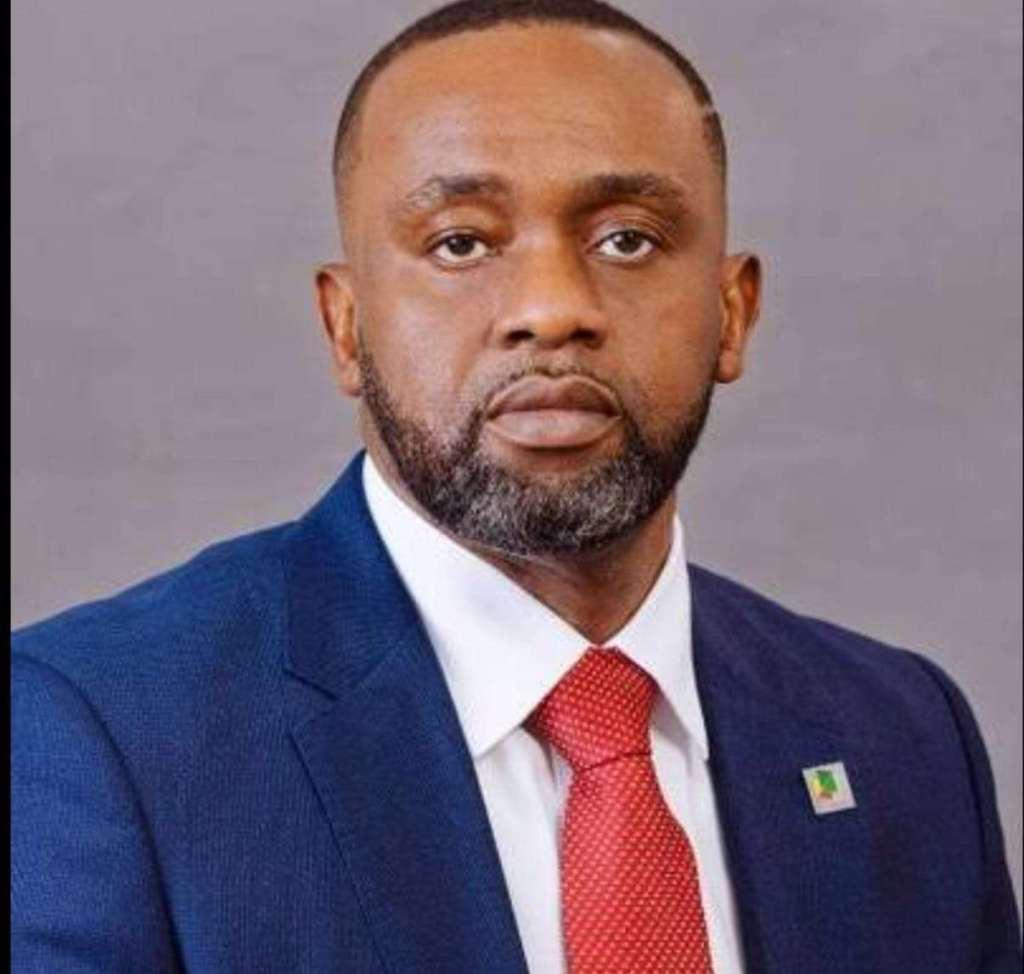IBADAN, Nigeria – August 25, 2025 – The Olubadan-designate, Senator Rashidi Ladoja, has issued a stern directive to Mogajis and Baales across Ibadanland, urging them to take full responsibility for the security of their communities and promptly report any criminal activities to the appropriate authorities. Speaking at a pivotal meeting with traditional leaders at his residence in Ibadan, Ladoja emphasized that no chief should claim ignorance of threats such as Boko Haram, cultism, land grabbing, or other criminal behaviors within their jurisdictions. He condemned land grabbing in the strongest terms, warning that any traditional ruler found complicit would face immediate consequences, including the loss of their title. Ladoja also called for closer collaboration with local government councils to enact and enforce bylaws addressing social ills like drug abuse and noise pollution. This report provides a comprehensive analysis of Ladoja’s directive, the role of traditional leaders in community security, the challenges facing Ibadanland, and the broader implications for governance and social stability in Oyo State and Nigeria.
Ladoja’s Call to Action: Chiefs as Community Security Officers
At a significant gathering of traditional leaders at his residence in Ibadan, Senator Rashidi Ladoja, the Olubadan-designate, delivered a powerful message underscoring the critical role of Mogajis and Baales in safeguarding their communities. As the incoming Olubadan of Ibadanland, a revered traditional title in one of Nigeria’s largest and most culturally significant cities, Ladoja’s directive carries substantial weight. “You are the chief security officers of your communities,” he declared. “Do not say you are unaware of any Boko Haram, cultists, land grabbers, or criminals in your areas. If you fail to report them, you will be held accountable.”
Ladoja’s statement reflects a proactive approach to addressing security challenges in Ibadanland, a sprawling metropolitan area encompassing 11 local government areas and a population of over 3.5 million, according to the 2006 Census (with estimates suggesting significant growth since). The Mogajis (family compound heads) and Baales (village heads) are integral to Ibadan’s traditional governance structure, serving as custodians of community welfare and cultural heritage. By designating them as “chief security officers,” Ladoja is reinforcing their responsibility to monitor and address threats, ensuring that grassroots intelligence reaches higher authorities promptly.
The Olubadan-designate’s emphasis on accountability stems from the recognition that traditional leaders, with their deep connections to local communities, are uniquely positioned to detect and report criminal activities. Ibadan has faced persistent security challenges, including cult clashes, land disputes, and drug-related crimes, which have disrupted social cohesion and economic activity. Ladoja’s directive aims to empower chiefs to take ownership of their domains, fostering a culture of vigilance and responsibility.
A Strong Stance Against Land Grabbing
One of the most striking aspects of Ladoja’s address was his unequivocal condemnation of land grabbing, a pervasive issue in Ibadanland and across Nigeria. Land grabbing, the illegal acquisition of land through fraud, coercion, or violence, has fueled disputes, displaced communities, and undermined development efforts. In Ibadan, a city with a complex land tenure system rooted in customary law, land grabbing has led to conflicts between families, communities, and developers, often exacerbated by corrupt practices.
“Any Mogaji or Baale who aids land grabbers will lose his title,” Ladoja warned. “There will be no leniency on this issue.” This pronouncement signals a zero-tolerance policy, reflecting the urgency of addressing a problem that threatens Ibadan’s social and economic fabric. By threatening to strip complicit chiefs of their titles, Ladoja is leveraging the cultural significance of these positions to deter misconduct. The title of Mogaji or Baale is not only a mark of prestige but also a responsibility to uphold community values, making the threat of removal a powerful deterrent.
Land grabbing in Ibadan is often linked to speculative real estate practices, where individuals or groups exploit unclear land titles or collude with local leaders to seize property. This has led to violent clashes, court cases, and displacement, particularly in rapidly urbanizing areas like Moniya, Ojoo, and Akinyele. Ladoja’s directive aims to restore trust in the traditional system by ensuring that chiefs act as stewards of communal land rather than enablers of exploitation.
Collaboration with Local Governments
Ladoja’s call for Mogajis and Baales to collaborate closely with local government councils is a strategic move to strengthen governance at the grassroots level. He urged councils to enact and enforce bylaws to address social ills such as drug abuse, noise pollution, and other offenses that undermine community well-being. “Our councils must enact bylaws against drug abuse, noise pollution, and other crimes,” he said. “If any situation goes beyond your control, escalate it immediately so that it can be addressed before it gets out of hand.”
This directive reflects the interconnected roles of traditional and statutory authorities in Nigeria’s governance framework. Local government councils, as the third tier of government, are responsible for grassroots administration, including public health, sanitation, and security. However, their effectiveness is often hampered by limited resources, corruption, and weak coordination with traditional leaders. By advocating for collaboration, Ladoja is bridging this gap, ensuring that traditional rulers complement the efforts of local governments to maintain order and promote development.
Drug abuse, particularly among youth, is a growing concern in Ibadan, with substances like codeine, tramadol, and cannabis contributing to crime and social unrest. Noise pollution, often from unregulated events and commercial activities, has also disrupted community harmony. Ladoja’s call for bylaws aligns with broader efforts to address these issues, empowering councils to impose fines, regulate activities, and collaborate with law enforcement to curb violations.
The Broader Context: Security and Social Challenges in Ibadan
Ibadanland, the capital of Oyo State, is a cultural and economic hub in South-West Nigeria, known for its rich history and vibrant community life. However, the city has faced significant security challenges in recent years, including cultism, armed robbery, and land disputes. The presence of groups like Boko Haram, while less prevalent in the South-West than in Northern Nigeria, remains a concern, particularly in border areas where porous security allows criminal elements to operate.
Cultism, a persistent issue in Ibadan, has fueled violence in neighborhoods like Agbowo, Oke-Ado, and Iwo Road, with rival groups engaging in deadly clashes. These activities have disrupted businesses, schools, and community life, creating an atmosphere of fear. Land grabbing, as highlighted by Ladoja, has exacerbated tensions, with disputes often escalating into violence. The 2023 Oyo State Land Use Charge controversy, which sparked protests over alleged extortion, underscored the sensitivity of land issues in the region.
The National Bureau of Statistics (NBS) reported a headline inflation rate of 21.88% in July 2025, driven by a 22.74% food inflation rate, which has strained household budgets and increased economic pressures in Ibadan. The naira’s 41.4% depreciation in 2024 has raised the cost of living, while the Central Bank of Nigeria’s (CBN) 26.75% Monetary Policy Rate has limited access to credit for small businesses, many of which operate in Ibadan’s bustling markets like Bodija and Oje. These economic challenges exacerbate social issues, making Ladoja’s call for proactive security measures timely.
The Role of Traditional Leaders in Governance
In Ibadan’s traditional governance structure, the Olubadan serves as the paramount ruler, supported by a hierarchy of chiefs, including Mogajis and Baales. These leaders act as custodians of culture, mediators in disputes, and representatives of their communities. Their proximity to the grassroots makes them critical to security and development efforts, as they can mobilize communities, gather intelligence, and foster trust.
Ladoja’s directive positions Mogajis and Baales as frontline actors in community security, aligning with Nigeria’s broader push for community policing. The Nigeria Police Force’s 2023 Community Policing Strategy emphasizes the role of traditional leaders in crime prevention, recognizing their influence and local knowledge. By holding chiefs accountable, Ladoja is reinforcing this model, ensuring that traditional authority complements statutory efforts.
However, the directive also places significant responsibility on chiefs, many of whom operate with limited resources and authority. The effectiveness of Ladoja’s call will depend on the support provided to Mogajis and Baales, including training, funding, and coordination with security agencies. The Oyo State Government’s collaboration with traditional rulers, as seen in initiatives like the Amotekun security outfit, could serve as a model for empowering chiefs.
Stakeholder Reactions
Ladoja’s directive elicited varied reactions from stakeholders. Community leader Chief Adebayo Ogunleye praised the Olubadan-designate’s stance, stating, “Senator Ladoja’s call for accountability is a wake-up call for chiefs. We must protect our communities from criminals and land grabbers.” Security analyst Dr. Chinedu Okeke commended the emphasis on collaboration with local governments, noting, “This approach strengthens grassroots governance and ensures timely responses to threats.”
However, some chiefs expressed concerns about the feasibility of their new responsibilities. “We need resources and training to act as security officers,” said Baale Olusegun Adeyemi of Moniya. “Without support, it’s a heavy burden.” Civil society groups, such as the Ibadan Peace Forum, called for broader reforms to address land tenure issues. “Land grabbing thrives because of unclear titles,” said spokesperson Amina Suleiman. “The government must streamline land administration.”
Residents of Ibadan expressed hope but urged swift action. “We want peace in our communities,” said trader Funmi Adewale. “The chiefs must work with the police to stop cultism and drug abuse.” The Oyo State Government, through its Commissioner for Local Government and Chieftaincy Matters, Olusegun Olayiwola, pledged support, stating, “We will collaborate with traditional rulers to ensure security and development.”
Implications for Ibadan and Nigeria
Ladoja’s directive has significant implications for Ibadan and Nigeria. In Ibadan, empowering Mogajis and Baales as chief security officers could reduce crime, restore trust, and promote development. By addressing land grabbing, the initiative could stabilize communities, attract investment, and support urban planning. The emphasis on bylaws to curb social ills aligns with broader efforts to improve quality of life in Ibadan, a city known for its vibrant markets and cultural heritage.
Nationally, Ladoja’s approach offers a model for leveraging traditional institutions to enhance security and governance. With Nigeria facing challenges like banditry, kidnapping, and communal clashes, the integration of traditional rulers into community policing could strengthen grassroots resilience. The directive also aligns with the Federal Government’s Renewed Hope Agenda, which prioritizes security and economic inclusion.
Economically, a safer Ibadan could boost trade and investment, particularly in agriculture and real estate, key sectors in Oyo State. The state contributes significantly to Nigeria’s GDP, with Ibadan’s markets serving as regional hubs. By curbing land grabbing and crime, the initiative could unlock economic potential, supporting Nigeria’s diversification goals.
Challenges and Opportunities
The initiative faces several challenges:
Resource Constraints: Mogajis and Baales often lack the funds and training to act as effective security officers, requiring government support.
Systemic Corruption: Collusion in land grabbing and other crimes necessitates robust accountability mechanisms.
Economic Pressures: Inflation (21.88%) and naira depreciation (41.4%) strain community resources, limiting the capacity to address social ills.
Security Threats: Persistent cultism and drug abuse require coordinated efforts beyond traditional leaders.
Opportunities include enhanced community trust, increased investment, and stronger governance through traditional-statutory collaboration. The initiative could also position Ibadan as a model for urban security in Nigeria.
Policy Recommendations
To ensure the success of Ladoja’s directive, the following recommendations are proposed:
Provide Resources: Equip Mogajis and Baales with training, funding, and communication tools to enhance their security roles.
Strengthen Land Reforms: Streamline land titles and establish tribunals to resolve disputes, curbing land grabbing.
Enforce Bylaws: Support local councils to enact and enforce laws against drug abuse and noise pollution.
Enhance Collaboration: Foster partnerships between chiefs, police, and Amotekun to improve intelligence and response.
Promote Community Engagement: Involve youth and women in security initiatives to ensure inclusivity.
Conclusion
Senator Rashidi Ladoja’s directive to Mogajis and Baales to take responsibility for community security marks a bold step toward addressing Ibadan’s challenges. By designating chiefs as chief security officers and condemning land grabbing, Ladoja is fostering accountability and collaboration, aligning with Nigeria’s broader security and development goals. In a context of 21.88% inflation and social challenges, the initiative could enhance safety, boost economic activity, and strengthen governance. With sustained support and systemic reforms, Ibadan can emerge as a model for community-led security, delivering lasting benefits for its residents and Nigeria.






